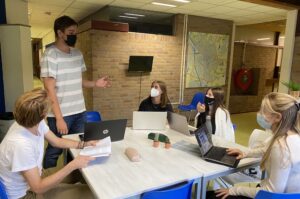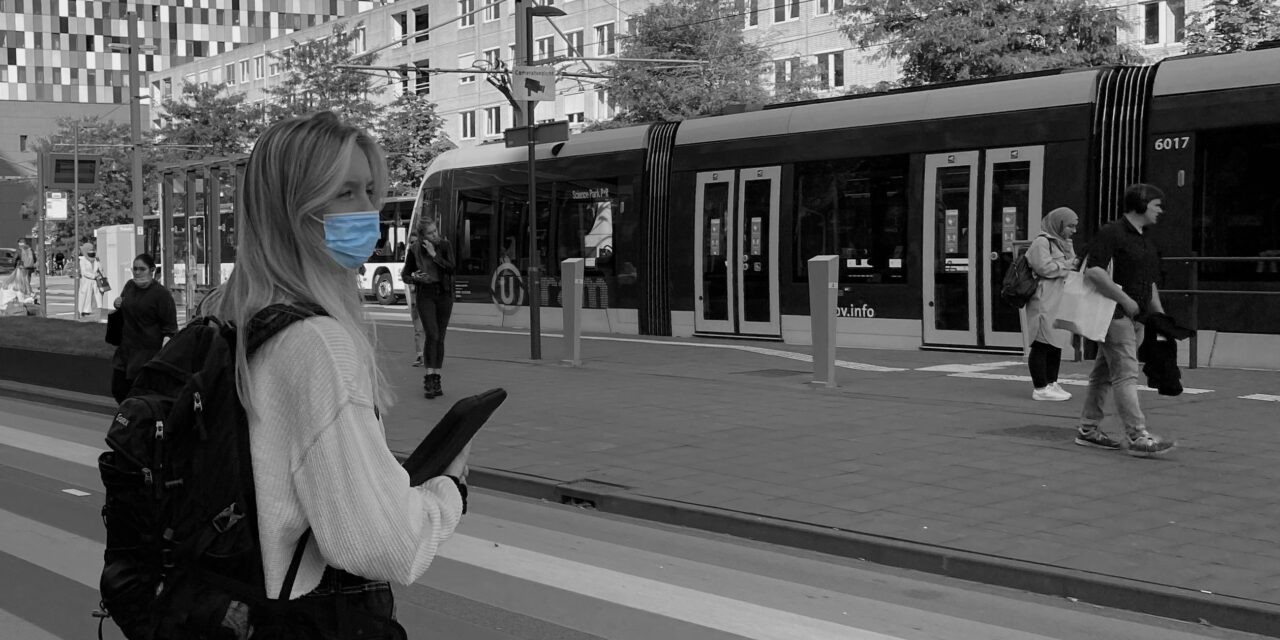Taking a suitcase and travelling alone to live thousands of kilometres away might sound crazy by itself. But now, Erasmus students have to face a new challenge: a pandemic that has been dragging on for two years. Not only do they have to adapt to another culture and language, but they also need to be prepared for any restriction, variant or even a lockdown. Is it possible to enjoy the experience when the whole world is paralysed?
The Erasmus + programme offers students belonging to the European Economic Area, Switzerland, North Macedonia, Serbia, and Turkey the opportunity to study abroad for a maximum period of ten months. They receive economic aid to cover expenses such as rent or transport. The pre- requisites include of being part of the EU, enrolled in a university master or degree programme, and have a specific number of credits completed.
That is why it might not surprise you that more than 940,000 people were involved in the Erasmus + programme in the academic year 2018-2019, as reported by the Erasmus + annual report. However, 2020 was a turning point. According to the European commissioner Mariya Gabriel, 60% of students cancelled their mobility as a result of the emergence of covid-19.
Thus, on the axe of uncertainty there was only one solution: reinvention. In the course 2020-2021 , some universities such as the University of Trieste (Italy) or University of Amsterdam decided to postpone all exchanges. Others, such as Hogeschool Utrecht (the Netherlands) still received and sent international scholars.
Hogeschool Utrecht and the role played by universities
The agreements between departments, abroad coordinators and faculty directors made it possible for HU to maintain their exchanges during 2020-2021. Nevertheless, the situation was completely different from what they were used to. Floor Mullen, the international officer for Hogeschool Utrecht, states that in the period 2020-2021 they welcomed 87 incoming students for the first semester and 91 for the second semester, compared to an average of 260 and 200 respectively.
Furthermore, the range of choice of destinations of their outgoing scholars was lower, since they had to be switched due to border limitations. “Our students’ safety is the most important. We had to be careful not to send them to a risky area”, she declares.
International officer Thera Hermans also emphasizes the educational measures taken, for example all online learning for an entire semester. It was a completely new environment and had an enormous influence on the process of interaction and integration in the city.
In spite of everything, in the current academic year, 2021-2022, normality is returning. Both Thera Hermans and Floor Mullen feel that the rapid vaccination programme has been a key factor to achieve this. In fact, everyone who studies at HU can get a vaccine and order free self-tests. Face to face education is also making a comeback in most European countries. They had to apply exceptional rules in the midst of the crisis and now are trying to break free from these extreme measures.

International students having a meeting during Covid. Source: Lorena Vara
Between a rock and a hard place, the final decision
Even though government and faculties have a great deal of influence, students have the final say. They had to choose between taking the opportunity of the Erasmus + programme or staying at home without knowing how events would evolve in the future, or what consequences they would have to face.
Mabel Acién, member of ESIC Business & MARKTING School in Spain, stayed in Augsburg, Germany, from September 2020 until July 2021. She recalls: “Bars were closed from November to May and at home you could be with maximum five people from two households. In Germany they closed all the hotels, you could not travel, and you had to quarantine both going and coming back”. Anyhow, she explains that she was very lucky with the group of people that she met: “We faced it with positivity, we became close very fast and entertained ourselves with anything”.
On the contrary, Sofía Ortega, student of journalism at University of Valencia, decided to wait until September 2021 to start her Erasmus in Bergen, Norway. She admits to having experienced quite a culture shock because “it seems that coronavirus doesn’t exist in comparison to Spain. Not even the masks are mandatory”. She adds: “I don’t regret postponing it, it has been of the best decisions of my life”.
Two big contrasts and just one year of difference. At this point, one thing is clear: the mobility programme has suffered the consequences of Covid-19, but the pandemic will not put an end to Erasmus. At least, for now.




